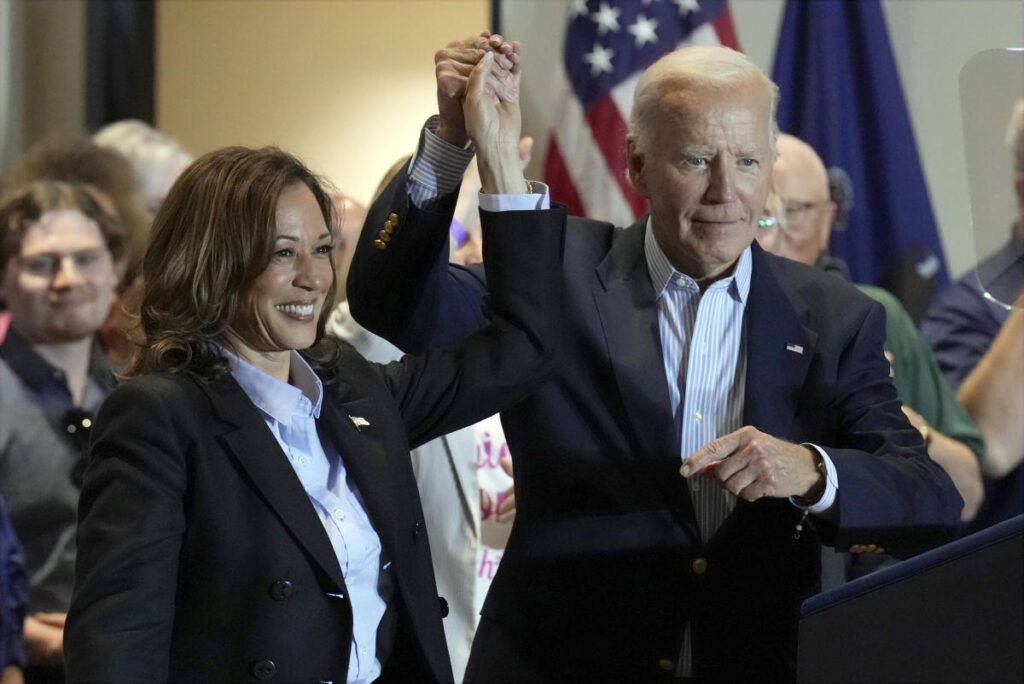On the last day of August, President Joe Biden articulated his intentions for campaigning in the upcoming fall election, promising a Labor Day event in Pittsburgh and suggesting that he would remain actively engaged on the campaign trail. However, following the Labor Day appearance with Vice President Kamala Harris, he receded from the political spotlight, raising concerns about his commitment to supporting Harris in her campaign efforts. These concerns were further amplified when instances arose where Biden’s official engagements overshadowed Harris’s campaigning activities, notably when they had separate responses to Hurricane Helene, with Biden’s remarks occurring simultaneously as Harris was addressing the nation from FEMA’s headquarters. This situation underscores a larger dynamic at play as Democrats aim to maintain Senate control and regain the House, while also promoting candidates down the ballot.
As Biden navigates his dual roles, balancing presidential responsibilities with campaigning for Harris, he faces a uniquely challenging predicament. In general, when a sitting president is a lame duck, the juggling act often involves integrating their day-to-day duties with political campaigning for a successor. Biden’s circumstance deviates from the norm due to his abrupt exit from the presidential race, which has significantly condensed the timeline for Harris as she steps up her campaign efforts. White House press secretary Karine Jean-Pierre emphasized the importance of Biden’s immediate role as president, suggesting that his focus should be directed toward governing rather than campaigning.
The recent fallout from Hurricane Helene has complicated Biden’s plans further, as the recovery process demands attention and resources. Biden has had to cancel several campaign events and pivot his focus toward disaster response, while both he and Harris have been separately engaging in tours to assess damage in affected areas. There have been instances where both have managed to avoid overlapping remarks, yet the impact of their separate engagements may detract from their collective campaign effectiveness. For example, a surprise appearance by Biden in the White House briefing room while Harris was in Detroit discussing union solidarity caused a stir that shifted media attention back to him rather than her.
Their public appearances together have been scarce, with their only campaign event together characterized by an awkward moment when Biden concluded his remarks too early, leaving Harris waiting for her turn at the podium. Their dynamic raises questions about how much Harris truly desires Biden’s involvement in her campaign, as some Democratic voters have reportedly expressed a preference for her over Biden as the party’s nominee. While she has commended the administration, certain policy distinctions have emerged, with Harris advocating for measures such as increasing taxes on capital gains and adopting a tougher stance on immigration—positions that stand in contrast to Biden’s broader agenda.
The potential for Biden’s campaign absence may be intensified by external commitments and the overall demands of his presidential role. Biden is tied to numerous pressing issues, including international relations and disaster recovery, which often pull him away from the campaign trail. Despite the complexities, some Democratic leaders believe that Biden’s natural affinity for the campaign trail will enable him to contribute meaningfully to the party’s efforts once primary responsibilities have been addressed. His grassroots connection, especially with blue-collar voters in battleground states like Pennsylvania, could provide necessary momentum as Election Day approaches.
Historically, there have been instances when a president’s absence from campaign activities has benefitted a party’s candidate. Looking at past elections, such as when George W. Bush’s declining approval ratings overlapped with the economic crisis in 2008, Republican nominee John McCain distanced himself deliberately from the Bush administration, conversely using criticism of federal policies to garner support. Similarly, Al Gore attempted to separate himself from Bill Clinton amid scandal during his own campaign in 2000. Political analysts note that while Biden’s popularity doesn’t reflect the strength Clinton enjoyed, it might be advantageous for him to prioritize governance over electioneering, leaving space for Harris and her supporters to take the forefront in the campaign narrative moving forward.

